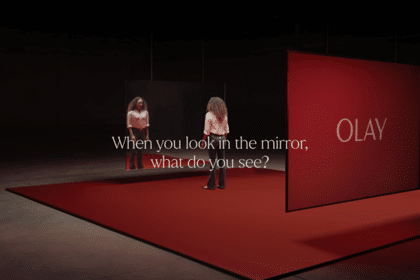An Uber Eats campaign that warns about the dangers of running out of treats on Halloween night is the scariest ad of all time.
That’s according to new research from creative effectiveness platform DAIVID, which ahead of Fright Night has used its advanced content testing platform – which measures the emotions people feel while watching ads – to identify the most frightening campaigns ever.
Ads featured in the list include ads that were banned from YouTube and TV for being ‘too shocking’ and ‘distressing’.
Topping the list of the scariest ads of all time is Uber Eats’ “Don’t Run Out”, released last year, which DAIVID’s ad testing tech platform found is the ad most likely to leave viewers hiding behind their armchair cushions after generating the most intense feelings of fear, anxiety and horror overall.
Watch it below:
The ad was 2.1 times more likely to leave people feeling anxious than the average ad, 1.7 times more likely to generate feelings of horror and 1.8 times more likely to leave viewers feeling fearful.
The campaign also scored the second highest among all the ads in the chart for brand recall (85 per cent), demonstrating just how effective intense feelings can be at driving strong memories among consumers.
That put it just ahead of two ads both banned for being “unduly distressing” and “shocking” – Spotify’s 2018 ad “Killer Songs You Can’t Resist”, in second spot, and a 2016 Christmas campaign for Thorpe Park’s Ghost Ride, in third.
Spotify came second on the scary list:
While Thorpe Park’s Ghost Ride came in third:
A terrifying 2013 ad for Japanese tyre firm Autoway and Dirt Devil’s spoof of the classic horror movie The Exorcist make up the rest of the top five. Watch them below:
Other ads in the top 10 include a creepy Burger King ad featuring some very scary clowns, a shocking Warner Bros teaser for the movie ‘The Nun’ that was banned from YouTube in 2018 and an unsettling campaign for Little Baby’s Ice Cream.
Number six on the list:
And number seven:
Ads that just missed out on the top 10 include a banned campaign for Phones4U, featuring a women being harassed by a ghost offering her a good phone deal (14th), a horrifying PSA from Fragile Childhood, a Finnish organisation focused on tackling alcohol abuse (23rd), and a chilling UK infomercial from the 70s warning children of the dangers of playing near water (27th).
Based in London, DAIVID, uses a suite of technologies – including facial coding, eye tracking and computer vision – to help advertisers optimise the business and emotional impact of their ad campaigns. Clients include Mediacom, Omnicom and ADK Marketing Solutions.
Eight:
Nine:
Ten:








